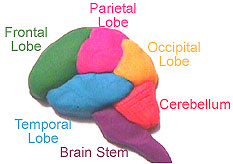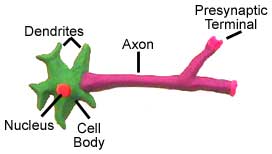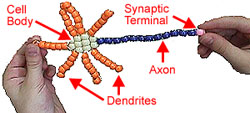OLQM - Science teacher for grades 2,5, 6, 7; 8. Social Studies teacher for grades 3,4, 5,6/7. This is an informative blog to enable parents and students to take ownership of their academic endeavors. Remember you hold your future in your hand. Take charge of it.
Wednesday, November 23, 2016
8TH SCIENCE - 11/28/16
http://www.planbookedu.com/s/J72CP
11/30 - Create an experiment that demonstrate Newton's Law of Motion
11/30 - Create an experiment that demonstrate Newton's Law of Motion
7TH SCIENCE - 11/28/16
http://www.planbookedu.com/s/T2G4L
11/29 - We will have 4 groups of 5 students. You can make your own groups. Check the science room to see if you can find some of the materials
Group 1: Model of the Brain and its texture
1.5 cups (360 ml) instant potato flakes
2.5 cup (600 ml) hot water
2 cups (480 ml) clean sand
1 gallon ziplock bag
Combine all of the ingredients in the ziplock bag and mix thoroughly. It should weigh about 3 lbs. (1.35 kg.) and have the consistency of a real brain.
Group 2: Model of the Brain - parts of the brain
11/29 - We will have 4 groups of 5 students. You can make your own groups. Check the science room to see if you can find some of the materials
Group 1: Model of the Brain and its texture
1.5 cups (360 ml) instant potato flakes
2.5 cup (600 ml) hot water
2 cups (480 ml) clean sand
1 gallon ziplock bag
Combine all of the ingredients in the ziplock bag and mix thoroughly. It should weigh about 3 lbs. (1.35 kg.) and have the consistency of a real brain.
Group 2: Model of the Brain - parts of the brain
clay: red; pink; blue, yellow green, purple
Create a model of the brain by using clay, playdough, styrofoam, recyclables, food, etc. Create a whole brain or use a brain atlas and create cross-sections of the brain at different levels. Use different colors to indicate different structures.


Materials:
Clay or Playdough or Styrofoam or Recyclables (bottle caps, cups, buttons, etc) OR Food (fruit, jelly beans)
A picture or diagram of the brain
33 empty spools of thread OR buttons may also work OR slices of paper towel holders).
Long strings or yarn
The human spinal cord is protected by the bony spinal column shown. There are 31 segments of the spinal cord and 33 bones (vertebrae) that surround these segments. There are 7 cervical vertebrae, 12 thoracic, 5 lumbar, 5 sacral and 4 coccygeal vertebrae in the human body. To model these bones, get 33 empty spools of thread (buttons may also work or slices of paper towel holders). Run a string or thread through the middle of one of the spools or buttons. Tie off one end of the string and put the remaining spools or buttons on the string. Each spool (or button) will represent one vertebra. When your model is finished, notice how it can bend. In a real spinal column, the vertebrae are held together by ligaments.
Materials:
Empty thread spools or buttons
String
Create a model of the brain by using clay, playdough, styrofoam, recyclables, food, etc. Create a whole brain or use a brain atlas and create cross-sections of the brain at different levels. Use different colors to indicate different structures.


Materials:
Clay or Playdough or Styrofoam or Recyclables (bottle caps, cups, buttons, etc) OR Food (fruit, jelly beans)
A picture or diagram of the brain
Group 3: Nerve Cell


modeling clay - different colors
Group: 4 - Spinal cord
 |
Long strings or yarn
The human spinal cord is protected by the bony spinal column shown. There are 31 segments of the spinal cord and 33 bones (vertebrae) that surround these segments. There are 7 cervical vertebrae, 12 thoracic, 5 lumbar, 5 sacral and 4 coccygeal vertebrae in the human body. To model these bones, get 33 empty spools of thread (buttons may also work or slices of paper towel holders). Run a string or thread through the middle of one of the spools or buttons. Tie off one end of the string and put the remaining spools or buttons on the string. Each spool (or button) will represent one vertebra. When your model is finished, notice how it can bend. In a real spinal column, the vertebrae are held together by ligaments.
Materials:
Empty thread spools or buttons
String
6TH SCIENCE AND SOCIAL STUDIES - 11/28/16
http://www.planbookedu.com/s/LDC92
SCIENCE
11/30 - Experiment on normal fault, strike-slip fault, reverse fault, and seafloor spreading.
SOCIAL STUDIES
12/1 - Research the ancient Egyptian's afterlife. Its importance to the Egyptians, the reason for the afterlife, the process of going through the afterlife, and other important information.
2 pages - typed
double space
SCIENCE
11/30 - Experiment on normal fault, strike-slip fault, reverse fault, and seafloor spreading.
SOCIAL STUDIES
12/1 - Research the ancient Egyptian's afterlife. Its importance to the Egyptians, the reason for the afterlife, the process of going through the afterlife, and other important information.
2 pages - typed
double space
5TH SCIENCE AND SOCIAL STUDIES - 11/28/16
http://www.planbookedu.com/s/FNTKV
SCIENCE
12/1 - Poem on LL as discussed in class on 11/28
SOCIAL STUDIES
11/30 - Explain the following people in NB. Use can use your textbook or the internet
1. John Cabot
2. Amerigo Vespucci
3. Casco Nunez de Balboa
4. Ferdinand
SCIENCE
12/1 - Poem on LL as discussed in class on 11/28
SOCIAL STUDIES
11/30 - Explain the following people in NB. Use can use your textbook or the internet
1. John Cabot
2. Amerigo Vespucci
3. Casco Nunez de Balboa
4. Ferdinand
Friday, November 18, 2016
8TH SCIENCE - 11/21/16
http://www.planbookedu.com/s/AWEBX
11/23 - On LL - Create an experiment using the Scientific Method on Newton's Laws of Motion.
11/23 - On LL - Create an experiment using the Scientific Method on Newton's Laws of Motion.
7TH SCIENCE - 11/21/16
http://www.planbookedu.com/s/A1HNE
11/22 - Textbook p. 616. Copy table 22-1 in NB for the Endocrine Glands
11/22 - Textbook p. 616. Copy table 22-1 in NB for the Endocrine Glands
6TH SCIENCE AND SOCIAL STUDIES - 11/21/16
http://www.planbookedu.com/s/C2TYA
SCIENCE
11/22 - WB - p. 176. Draw and label diagram neatly. Do not do the questions
SCIENCE
11/22 - WB - p. 176. Draw and label diagram neatly. Do not do the questions
Monday, November 14, 2016
Weekly Reminders
11/18 - Teachers' Conference Day - NO SCHOOL FOR STUDENTS
11/17 - 5 and 6 Map of the Month Due!
11/17 - 5 and 6 Map of the Month Due!
Saturday, November 12, 2016
6th Science and Social Studies - 11/14/16
6th Science and 6th Social Studies - 11/14/16
SCIENCE
11/17 - WB - p. 189. 1-12 in NB
SOCIAL STUDIES
11/16 - Copy and define the following vocabulary words in NB
Chapter 3 - Lesson 1 and 2
1. tributary
2. plateau
3. alluvial plain
4. silt
5. city-state
6. monarchy
7. authority
8. polytheism
9. caravan
10. architecture
SCIENCE
11/17 - WB - p. 189. 1-12 in NB
SOCIAL STUDIES
11/16 - Copy and define the following vocabulary words in NB
Chapter 3 - Lesson 1 and 2
1. tributary
2. plateau
3. alluvial plain
4. silt
5. city-state
6. monarchy
7. authority
8. polytheism
9. caravan
10. architecture
5th Science and Social Studies - 11/141/6
5th Science and 5th Social Studies - 11/14/16
SCIENCE
11/17 - WB P. 120. BIOMES i n NB
Write out the passage using the correct terms to fill in the spaces.
SOCIAL STUDIES:
11/16 - CHAPTER 3 - LESSON 1
DEFINE THE FOLLOWING VOCABULARY WORDS IN NB
1.TECHNOLOGY
2. NAVIGATION
3. EXPEDITION
4. EMPIRE
5. ENTREPRENEUR
6. COST
7. BENEFIT
8. RECONQUIST
SCIENCE
11/17 - WB P. 120. BIOMES i n NB
Write out the passage using the correct terms to fill in the spaces.
SOCIAL STUDIES:
11/16 - CHAPTER 3 - LESSON 1
DEFINE THE FOLLOWING VOCABULARY WORDS IN NB
1.TECHNOLOGY
2. NAVIGATION
3. EXPEDITION
4. EMPIRE
5. ENTREPRENEUR
6. COST
7. BENEFIT
8. RECONQUIST
Thursday, November 10, 2016
NATIVE AMERICAN HERITAGE PROJECT
DUE: 12/15
Students in 5th and 6th grade: Guidelines for your powerpoint presentaion on your Native America Project. 5 minutes per presentation.
Each slide shoulder include the following
* Choose a specific tribe (Title)
* Where do they live
* Their culture, religion; schooling, type of celebration etc.
* Are they hunters and gathers?
* What type of housing?
* Who were in charge of the tribe; matriach or patriach?
* Clothing style
* Food they ate
* Type of resources available to them
* Is your tribe still around and where do they live now etc.
* And any other information that you need to include in your powerpoint. 5 minutes per presentation.
Students in 5th and 6th grade: Guidelines for your powerpoint presentaion on your Native America Project. 5 minutes per presentation.
Each slide shoulder include the following
* Choose a specific tribe (Title)
* Where do they live
* Their culture, religion; schooling, type of celebration etc.
* Are they hunters and gathers?
* What type of housing?
* Who were in charge of the tribe; matriach or patriach?
* Clothing style
* Food they ate
* Type of resources available to them
* Is your tribe still around and where do they live now etc.
* And any other information that you need to include in your powerpoint. 5 minutes per presentation.
Friday, November 4, 2016
Weekly Reminders - 11/7/16
Module Exams will be given this week. Students should be reviewing for their tests. (notes and classwork that was covered from September to November 4th)
Tuesday - Social Studies and ELA
Wednesday - Math and Science
Thursday - Religion and Reading
Tuesday - Social Studies and ELA
Wednesday - Math and Science
Thursday - Religion and Reading
Subscribe to:
Comments (Atom)